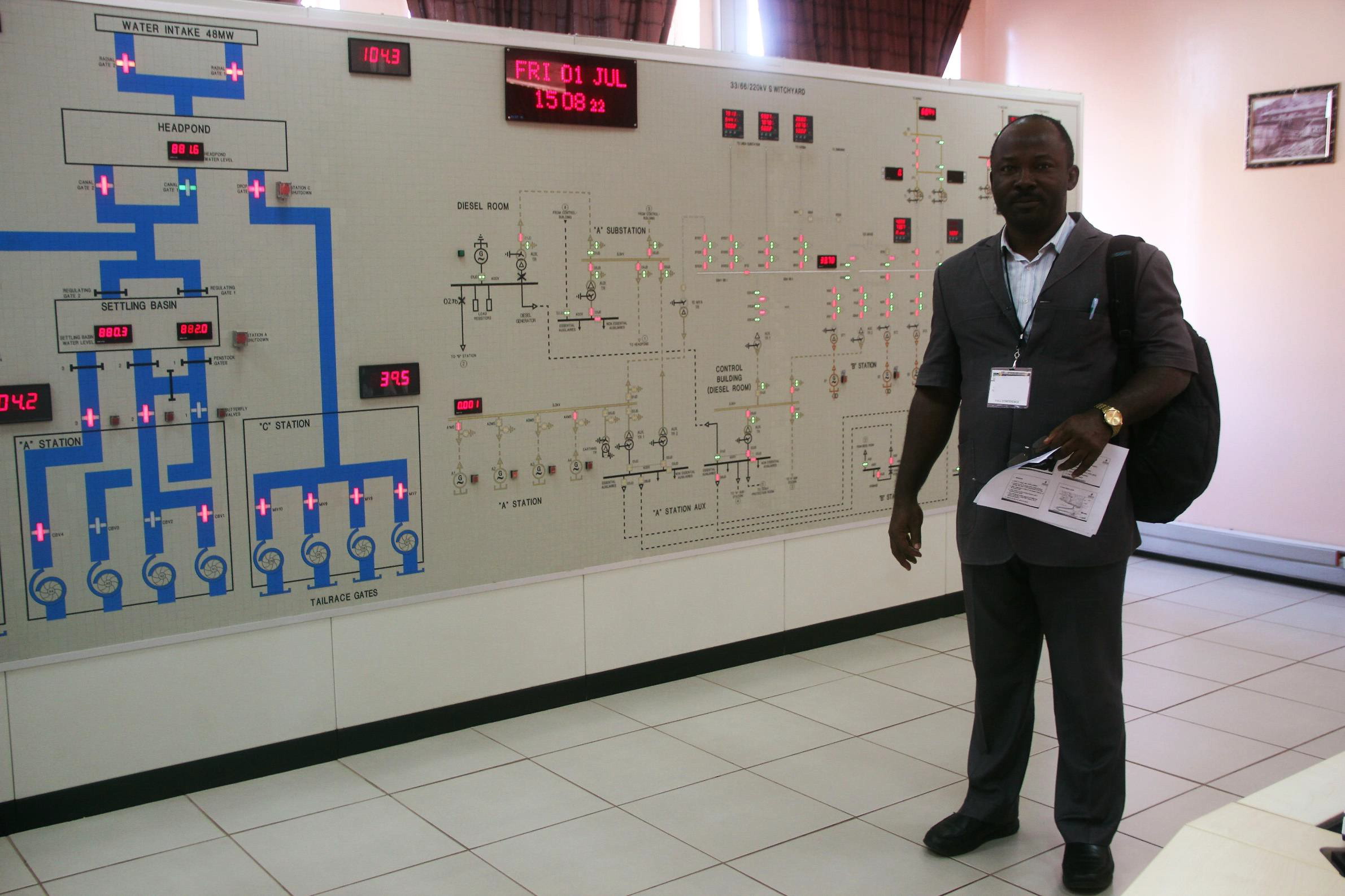Systems engineering perspective on power transmission for Nigeria PI: Adegoke Melodi (
melodiadegoke@yahoo.com or
aomelodi@futa.edu.ng) with co-PI Olatubosun Olabode, The Federal University of Technology, Akure
U.S. Partner: Kevin Tomsovic, University of Tennessee
Project Dates: September 2014 - November 2018
The aim of this project is to develop an algorithmic model for planning transmission expansion or development in order to achieve acceptable reliability of transmission and maximize cost-benefit ratio of transmission operations under the growing deregulated operating environment of Nigeria and the probabilistic factors affecting power transmission-demand relationship. It is expected that the model would be applicable to power distribution as well. Primarily, the model would enable a dynamic planning process for providing optimal plan options, applicable for implementing transmission installations and operations that will prevent recurrence of historically unreliable transmission problems in Nigeria under a State-regulated environment and ensure sustainable service for the Transmission Company of Nigeria (TCN) under deregulated conditions. The novel concept in this project includes the application of a value base reliability approach to transmission expansion planning (TEP) of the Nigerian power transmission network, which will be embedded in a developed multi-stage and multi-objective optimization algorithm for the transmission planning. This concept will use a state-of-the-art optimization procedure and a new congestion index. Further, the proposal will provide guidelines for future TEP to be used by TCN planning engineers.
 |
| Dr. Melodi at the control board (Picture courtesy of Dr. Melodi) |
In summary, the proposal is expected to provide an optimal value-based reliability TEP determination framework, which considers prevailing power market dynamism, for assisting system development in deregulated demand-supply condition; and typical optimal TEP solutions for the Nigeria transmission network in the short and long terms.
The framework developed will restore value reliability and economically effective power transmission to the Nigerian future systems, in line with Power Africa objectives. Implementation of the proposal should provide opportunities for training male and female students at the Federal University of Technology, Akure, in power systems planning research and improve on the research contributions and capacity of the investigators in providing solutions to African power development problems.
Further, the implementation of the proposal within the Federal University of Technology, Akure will assist in developing the university’s infrastructure and human capacity in power research.
Final Summary of Project Activities
The PI and his project team obtain system data from Transmission Company of Nigeria (TCN) that spanned 2000 to 2014 and covered 2014 network parameters, 2000-2014 bulk supply load records, generation data, 2005-2007 and 2010-2014 line outage data. The data was compiled using software and applied in subsequent tasks. Load dynamics for each TN bus from 2000-2014 were obtained from data sorting and consolidation of monthly records and generation and load data for each region were analyzed quantitatively. Population data was obtained from the Nigerian Population Census agency and was compiled for regions. Forecasts based on Probabilistic Time series Load Dynamics with Monte Carlo random variable concept were generated.
The specified historical transmission network data, obtained from TCN was applied in achieving the specific objective of obtaining probabilistic load forecasts using Monte Carlo, Artificial Neural Networks, and Fuzzy Logic. Based on the first results, the PI and his team presented and published peer-reviewed conference paper “Probabilistic Long-Term Load Forecast for Nigerian Bulk Power Transmission System Expansion Planning” in 2016 PowerAfrica proceedings and IEEEXplore.
Based on a second probabilistic forecast results, a journal paper “Specific System Random Load Forecasts and Loadflow Responses on Nigerian 330 kV 38-bus Transmission Grid” was peer reviewed and published in the Journal of Engineering Research in Africa. One of the students of the project successfully defended his thesis “Development of a Probabilistic Transmission Expansion Planning Model for Nigerian 330 kV Transmission Grid.”
The project team has shared results with the power transmission industry, engineers, academia and regulatory body, and continue to coordinate with them post project.
Publications
Melodi, A.O., Momoh, J.A., & Adeyanju, O.M., "Probabilistic long term load forecast for Nigerian bulk power transmission system expansion planning," 2016 IEEE PES PowerAfrica, Livingstone, Zambia, 2016, pp. 301-305. https://doi.org/10.1109/PowerAfrica.2016.7556621
Melodi, A.O., Momoh, J.A., & Adeyanju, O.M. (2018). Nigerian 330 kV 38-bus transmission network 10-year expansion planning under probabilistic load forecasts. Electrical Engineering, 100, 2717-2724. https://doi.org/10.1007/s00202-018-0735-3
Melodi, A. O., & Adeyanju, O. M. (2016). Specific System Random Load Forecasts for Nigerian 330 kV 38-Bus Transmission Grid. In International Journal of Engineering Research in Africa (Vol. 27, pp. 87–94). Trans Tech Publications, Ltd. https://doi.org/10.4028/www.scientific.net/jera.27.87
PEER Cycle 3 Grant Recipients




